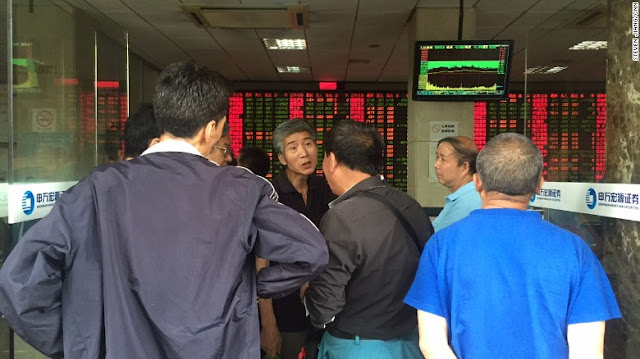China – The World’s Largest Creditor
China is considered to be the world’s largest creditor and the enormous money reserves of Beijing presently stands at a $3.6 trillion, which is still the leading owner foreign holder of US government debt. For over two decades, China, the world’s second largest economy had developed a war chest of foreign currency assets as a shield against the global winds.
However, on August 11, the decision taken to tweak its exchange rate regime to engineer the biggest single devaluation of the renminbi in 21 years has put forth the query of reserve depletion in severe aid. After deserting its peg with the US dollar for anachieveddrift, those in authority have been compelled to get involved on a huge scale to prop up the renminbi.
China had gone through reserves due to this failed devaluation, at an unmatched pace this summer wherein the reserves had dropped by $93.9 billion in August. This was the biggest monthly fall on record as well as the largest with regards to percentage terms since May 2012. This is set to continue for at least the remaining of the year. China would be slowly moving towards a much flexible exchange rate though not yet willing to feature a considerably weaker renminbi
Quantitative Tightening
As per UBS analysis, almost 70% of China’s reserve accumulation between 2005 and 2014 was from the country’s enormous present account excesses. The total reserves emaciated at $4 trillion in August 2014 had been on a steady decline since then.
As for the composition, UBS note that almost two-thirds around 62% was held in US dollar assets with about $1.27 trillion in the US treasury bonds. China had shifted from being a net buyer to a net seller of dollar assets to defend the value of the renminbi and this has given rise for concern that Beijing’s actions tends to have a stifling effect on the global credit as well as liquidity conditions.
This occurrence named as `quantitative tightening has been seen as concern when China can no longer play a part as the driver of global economic prosperity, at a time when the Federal Reserves is ultimately poised to begin normalising the monetary policy. In the midst of the trouble surrounding China’s prospects, economist tends to remain optimistic, speculating the fears of a dwindling war chest are possibly overdone.
China/Emerging Markets – Offload Foreign Currency Assets
Bumper reserves of Beijing, at $3.6 trillion, seem to be adequate in continuing to establish the currency and covering 20 months of imports of goods and services. All this, states, Tao Wang at UBS, `while the country continues running a current account surplus of over $300bn a year’.
Others consider that Beijing’s intensive reserve accumulation had been developed to confront precisely the kind of headwinds presently facing the country and are not surprising that the Politburo is now organizing them for the same purpose.
The authorities have also other various tools to fight off tighter monetary conditions. With regards to the impact on the growth of China on the rest of the world, the QT theory for intuitive appeal is still to be materialised in the form of rising bond yields with higher debt costs in the developed world.
China together with the other emerging markets could be offloading their foreign currency assets to handle their individual exchange rates though these may not be destined to drive up the bond prices according to economists.

















